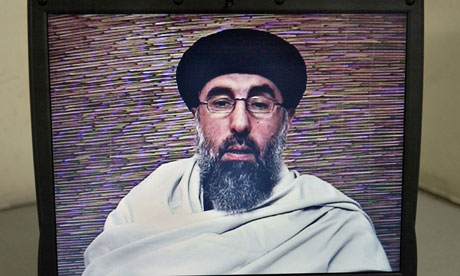
When the Taliban's poetry book was published in the UK this month, many found it very strange indeed, but someone who understands the culture and lifestyle of Afghans knows how important poetry is to Afghans. On a visit to Jalalabad during the orange flower blossom celebration, I have felt the power of poetry within the people. As each word was recited by poets, people would rise up, cheer, and then sit down. This is how Afghans live and breathe poetry and drown in an illusion and dream.
The Taliban are like other Afghans, humbled by poetry, and their connection to poetry is older than their connection to radical Islam, the Kalashnikov and grenades.
The history of poetry in Afghanistan dates back millennia. It flourished during the reign of Sultan Mahmud of Ghazni, who ruled from 998 to 1030, and was a man of literature and poetry, with more than 700 poets living in his palace. But 100 years before the Sultan of Ghazni, Persian literature was born in the court of the first Persian king, Yaqub, in Nimruz, a western province of Afghanistan. It is said that one day a poem was recited in Arabic to praise him, but as Yaqub didn't understand Arabic he ordered that no poem should be recited in a language he did not know. So the literary men of the court were forced to compose poems in Farsi, the language of the king. And the rest is history.
Poetry is everything to Afghans, we hear and recite poetry from cradle to grave. Regardless of our ethnicity, whether we are Tajik, Hazara, Pashtun, Uzbek, Turkmen, Nuristani, Baluch, or any other of the hundreds of sub-ethnic groups, Afghans are threaded together by poetry.
Babies are rocked to sleep with spontaneous poetry recited in lullabies by their mothers. These mothers learned how to be poets from their mothers; as their mothers had learned from their mothers. This is how our society of poets was born.
When children begin school, the first Persian text introduced to them is Divane Hafiz of Shiraz. Hafiz was a 14th century poet from Shiraz (modern-day Iran). Traditionalists believe Divane Hafiz of Shiraz is the book of knowledge, containing everything from poetry to philosophy. Non-Persian speakers have their own version – among Pashtuns, Rahman Baba, and among Uzbeks, Fuzoli or Navai hold the same stature.
As Afghans get older, Hafiz is replaced with the study of other poets. In the mornings, Saadi, another poet from Shiraz, is studied, and in the afternoons we read Bedil, a Persian speaking poet from Delhi whose work is more complicated and philosophical. Evening and long nights of winter are dedicated to Shahname (Book of the Kings) by Firdausi. Shahname is the greatest Persian work of poetry and is compared to Homer's Odyssey. It is an epic poem written 1,000 years ago with an anti-Arabic ideology, aimed to preserve the Persian language and culture.
Poetry infiltrates all levels of Afghani society. When the mullahs want to make a statement but cannot back it by reason, they back it with a poem and end the discussion. In the recent years, lords and warlords have competed to have the best poets onside, much like the courts of the past kings. Gulbuddin Hekmatyar, the leader of one of the terrorist groups – one of the most wanted in America – is a professional poet. Ahmad Shah Massoud, the legendary commander and rival to Hekmatyar was also a poet. Dr Abdullah Abdullah, the leader of the opposition and Gilani, head of a Sufi popular group also share the passion for poetry. This common thread can at times bring all the leaders and commanders together under one roof.
About 10 years ago, at the end of the civil war but before the American bombs began to drop, some poets and I were invited to Mazar-e-Sharif by a local governor. We went for a week and were forced to stay for two months. All the commanders and the warlords fought to host us and they would invite the whole city in our honour. A scene that to most would only occur in the novels of Gabriel Garcia Marquez is part of our reality in Afghanistan.
• Reza Mohammadi and Nick Laird will be reading Reza's poetry at Asia House Festival of Asian Literature on 21 May at 6.45pm.

